I don’t want to overload this salon, but I thought that a follow-thru entry about dyes might be interesting. All the texts I have access to, although they devote many pages to natural dye materials and processing of those materials, say that chemical dyes pervade the market today. I have no reason to doubt that since it seems reasonable to me, but just like the folks here on Turkotek, most everyone yearns for “natural” dyes. And so it
follows, it again seems to me, that the market will respond to that.
On a trip to Luang Prabang in Laos last week, I went out to a nearby village which is, in fact, a commercial weaving area, to see what that would be like. There were, as I expected, lots of weavers to be seen making contemporary textiles on traditional looms. One place, however, also had an area in the back where there was a display of natural materials, various plants and minerals, collected and placed in baskets to show the materials used for dyeing these new weavings. Being the good tourist, I took some pictures, and that’s what I want to show you. It looked real enough to me, though I did note that I didn’t see any boiling vats of coloring material or anything like that, so I can’t be positive that they were actually using them for dyeing. But for what it’s worth, here is what I saw.
They had on display a series of materials that when processed would produce a particular natural color for dyeing cotton or silk, so the implication is that this is what they used. Here’s picture of a rack of baskets with these materials, even and with the names of the plants, minerals, and insects.
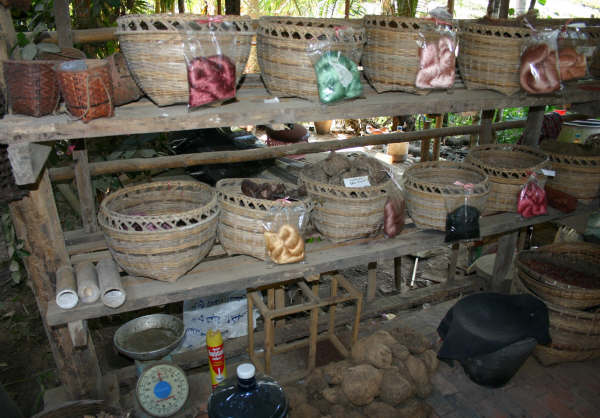
And here are some close-ups of three of the baskets.
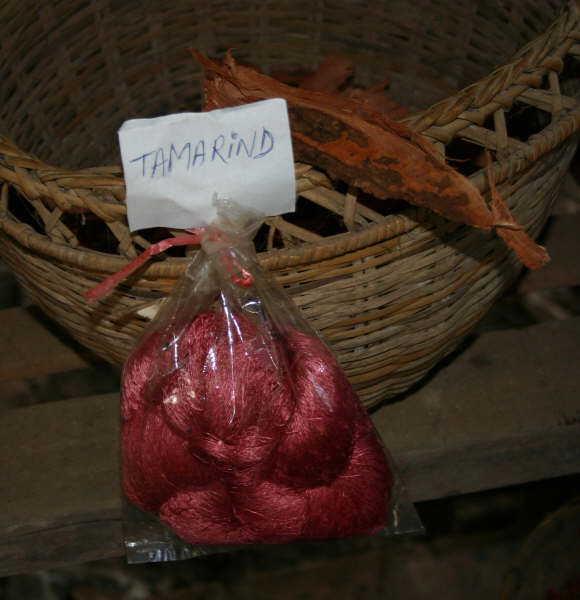
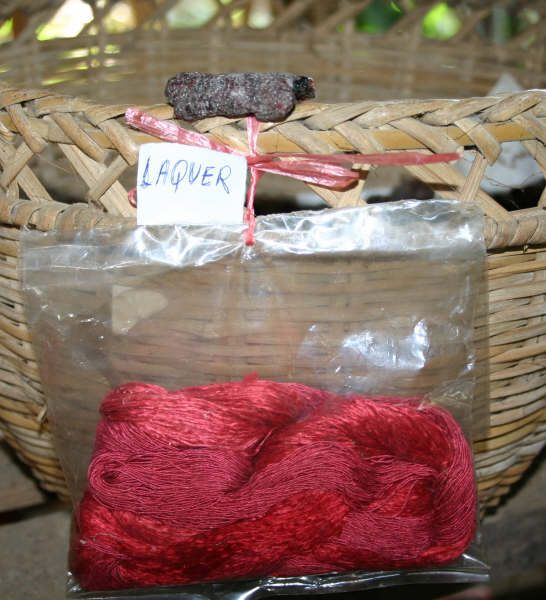
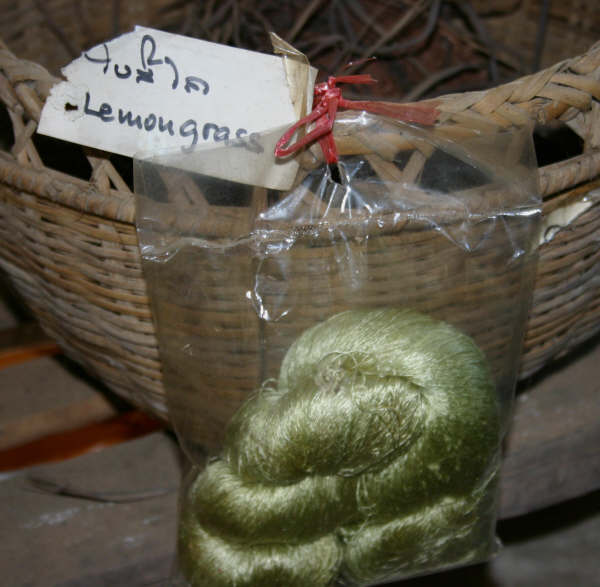
Here’s a shot of what looks like several groups of fibers being prepared for an ikat weaving. I didn’t notice whether they were silk or not.

And here’s one of the weavers, followed by a shot of spinning wheels.
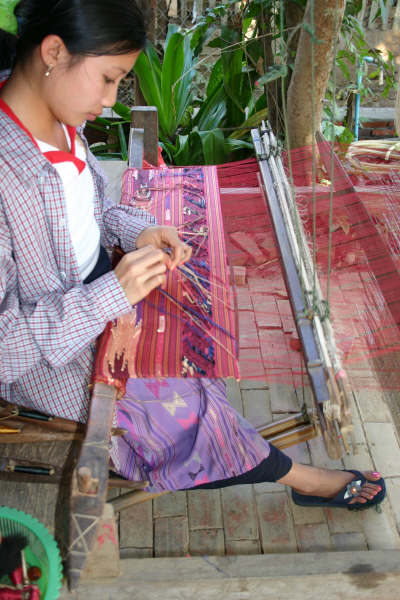
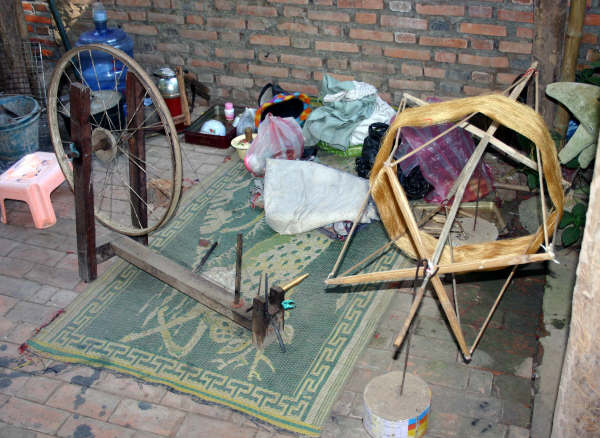
Before someone calls me on it, I don’t want to say that all this means what we have here are happy villagers making textiles on hand looms just the way their mothers and grandmothers did, including the use of natural dyes. Maybe, but I doubt it. Nonetheless, the actual production of contemporary Lao textiles on hand looms in that weaving village seemed real enough to me. It is, of course, only my opinion, but with the opening up of Luang Prabang to tourism to the extent that perhaps eighty percent of the town’s economy has become dependent on international travelers, with direct flights from Bangkok, Chiang Mai, and even Phnom Penh, flights full of French tourists, and lots of German and British tour groups too, that’s more than enough to make me wonder how real can things be, and that would include even small things like natural dyes in modern Lao textiles from Luang Prabang.
That doesn’t mean all of Laos is like that – far from it; there must be many isolated places that continue traditional customs - just look at the Tai Dam embroidery weavings, complete, including a bit of dirt.
But it is in Thailand where the greatest variety and sophistication in weaving has developed, uninterrupted by conflict, and with the ongoing support of the government, one hopes it will continue.
Walt